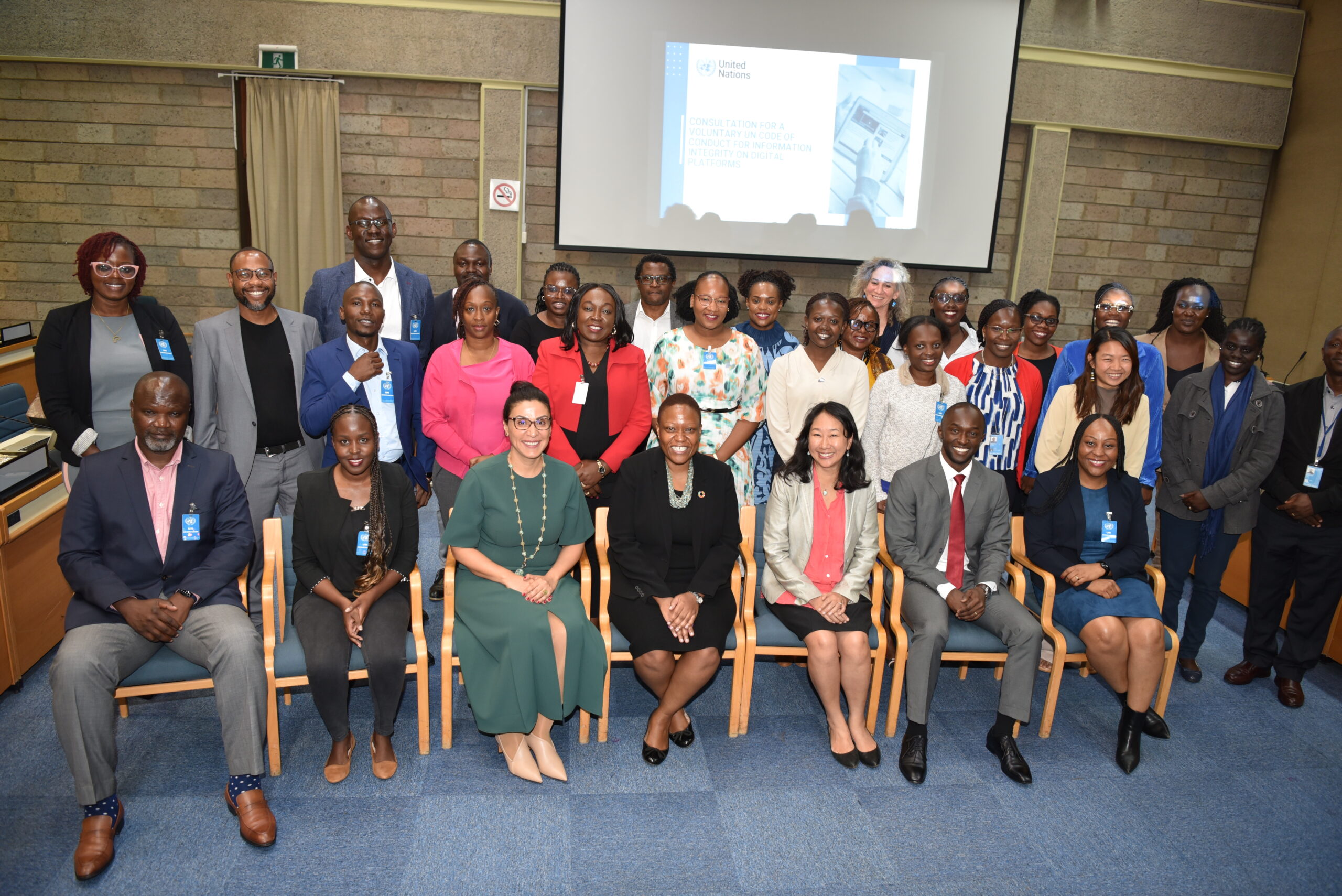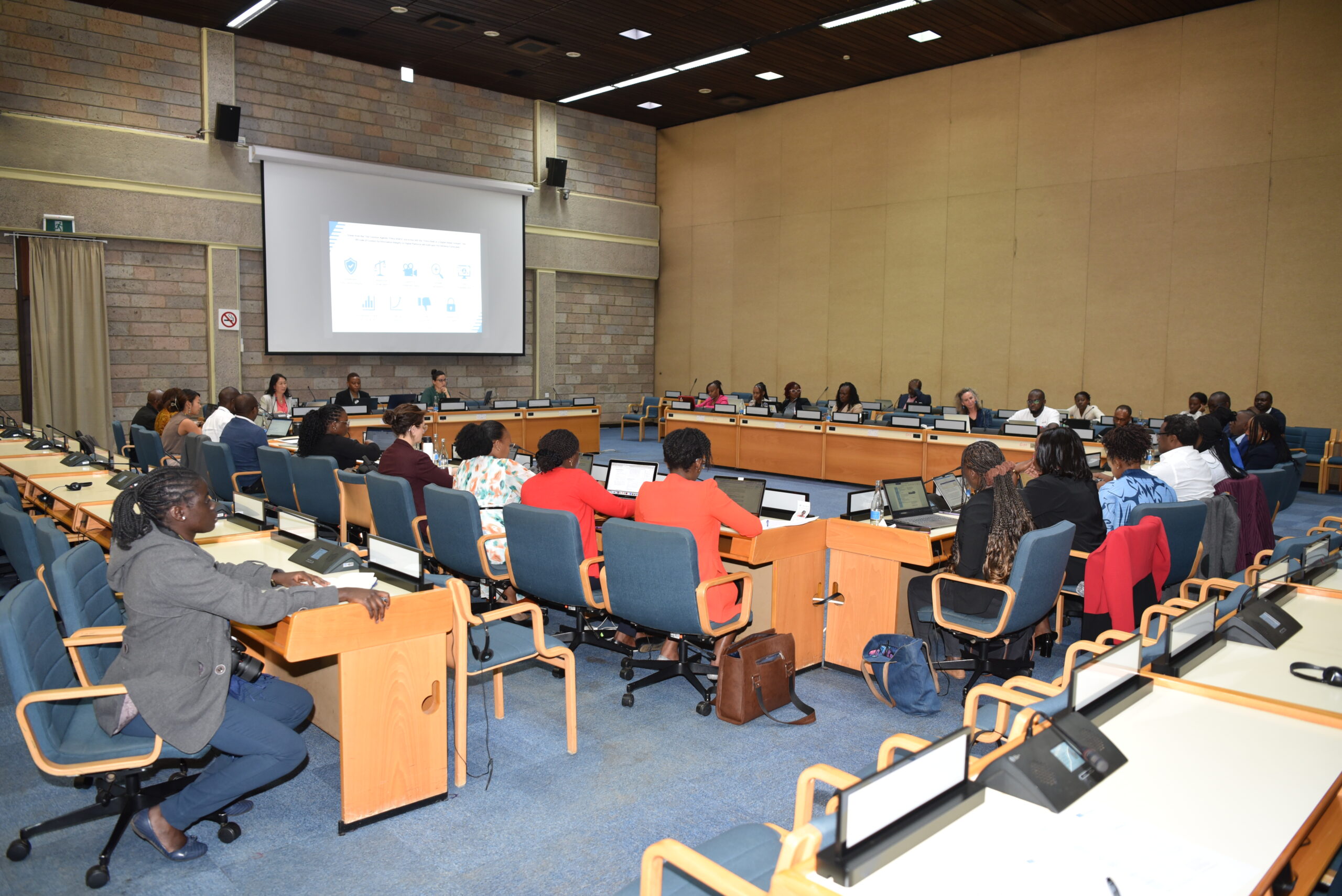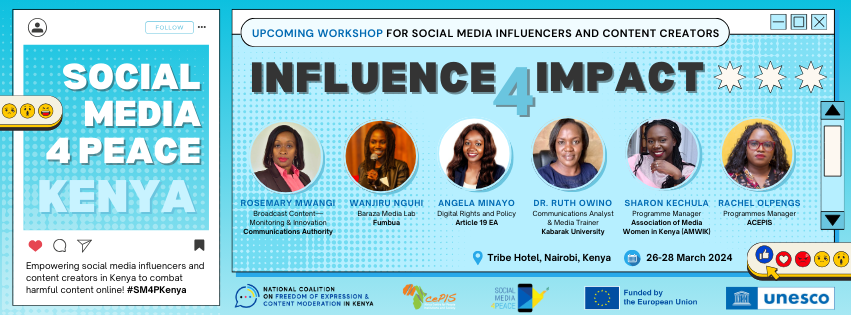
Expert consultation on the UN Code of Conduct on Information Integrity on Digital Platforms, held 5 December 2023 at UNON Gigiri. © UNESCO
The National Coalition on Freedom of Expression and Content Moderation in Kenya (FECoMo), established under UNESCO’s Social Media 4 Peace project, has published its recommendations on the proposed UN Code of Conduct for Information Integrity on Digital Platforms. The recommendations contribute critical expert insights and often-overlooked Kenyan and African perspectives to the process of global norms-setting in multilateral spaces.
The proposed UN Code of Conduct on Information Integrity on Digital Platforms will help guide Member States, digital platforms and other stakeholders in their efforts to ensure a safer and more inclusive digital space for all, while vigorously defending the right to freedom of expression and access to information. It will be formally discussed and proposed as a framework for a coordinated global response to the ongoing information crisis on digital platforms at the forthcoming United Nations Summit of the Future 2024, a high-level intergovernmental meeting that will agree on multilateral solutions for a better tomorrow and strengthen global governance for present and future generations.
The published recommendations follow from an Expert Consultation organised by the United Nations Information Service (UNIS) and UNESCO Regional Office for Eastern Africa, held on 5 December 2023 in Nairobi, Kenya. The consultation was one of many around that world convened in response to UN Secretary General António Guterres’ call for a broad engagement and strong contributions from all stakeholders on the proposed Code of Conduct ahead of the Summit, which will take place from 22-23 September 2024 in New York.
“Our policy brief on information integrity on digital platforms puts forward a framework for a [concerted] international response. Its proposals are aimed at creating guardrails to help governments come together around guidelines that promote facts, while exposing conspiracies and lies, and safeguarding freedom of expression and information; And to help tech companies navigate difficult ethical and legal issues and build business models based on a healthy information ecosystem.”
— António Guterres, Secretary-General, United Nations, 12 June 2023, at the Secretary-General’s Press Briefing on Policy Brief on Information Integrity on Digital Platforms
In Kenya, the consultation convened 26 experts from multidisciplinary fields, including regulation, public policy, law, civil society, media, technology and academia among others. Majority of the experts who engaged in the consultation were members of FECoMo, established under UNESCO’s EU-funded Social Media 4 Peace project—a multi-year project aimed at building society’s resilience to potentially harmful content online. The Coalition is composed of multidisciplinary stakeholders committed to addressing potential harmful content online, particularly mis/disinformation and hate speech in Kenya.

Social media platforms are deeply embedded in our social fabric and mediate the ways that people around the world understand and interact with one another. They have and will increasingly play a significant role in shaping our knowledge societies and shared realities. Around the world, more than five billion social media users—over 60% of the global population—use social media platforms to access information, connect with loved ones, and represent themselves in the social, economic, and political processes that shape our present and future.
However, the ubiquity of digital platforms—in particularly social media platforms—has more recently surfaced deep and troubling concerns about its impact on peace and cohesion. Hate and lies spread with more velocity, volume and virality than ever before, with serious harms on local, regional and global peace. Today, conflict and violence, as well as the degradation of human rights and democracy, draw direct causal links to the circuits of hate speech, misinformation and disinformation that proliferate in the online spaces. Government regulatory frameworks are scarcely ready to respond to these new emerging challenges. Platforms and platform designers need to rethink and reflect on existing algorithmic designs and business models, which create affordances for malicious actors to profit off harmful content online.
Against this backdrop, the published document distils the key recommendations to the proposed UN Code of Conduct, presented by the Coalition and other experts during the consultations in Kenya. It outlines FECoMo’s position on protecting information integrity, promoting digital platforms’ governance, and user empowerment—particularly within a Kenyan and African context. These interventions are consistent with FECoMo’s mission to provide thought leadership, expertise, and strengthen cross-sectoral partnerships in advancing information integrity on digital platforms in Kenya.
“It is hoped that the recommendations provide opportunities for reflection, consideration, and fruitful dialogue with policy makers, citizens, and the global community to collaboratively realize a safe, inclusive and empowering online environment in Kenya and the world.”
— Victor Kapiyo, Advocate, Researcher, and Tech Law Specialist, KICTANET
Read the Recommendations:
Recommendations on the UN Code of Conduct on Information Integrity on Digital Platforms

 Digital technologies transformed the ways in which information is created, conveyed and consumed. Today, people around the world are more enabled than ever before to access, create, and disseminate information. Given the importance of information to decision-making, problem-solving and buildling knowledge, there is a pressing need for reliable and accurate information. However, advancements in digital technologies including the proliferation of AI technologies have also led to proliferation of harmful content across digital platforms. This phenomenon is increasingly blurring the distinction of truth/facts from falsehoods/fiction, threatening societal cohesion, security and wellbeing. As a result, today’s information space is flooded with a wide spectrum of information—ranging from credible news to disinformation and hate speech—which are at times effectively indistinguishable. To promote the resilience of communities against this wave of harmful online content, there is a need to upskill those who create, convey and consume information on Digital, Media and Information Literacy.
Digital technologies transformed the ways in which information is created, conveyed and consumed. Today, people around the world are more enabled than ever before to access, create, and disseminate information. Given the importance of information to decision-making, problem-solving and buildling knowledge, there is a pressing need for reliable and accurate information. However, advancements in digital technologies including the proliferation of AI technologies have also led to proliferation of harmful content across digital platforms. This phenomenon is increasingly blurring the distinction of truth/facts from falsehoods/fiction, threatening societal cohesion, security and wellbeing. As a result, today’s information space is flooded with a wide spectrum of information—ranging from credible news to disinformation and hate speech—which are at times effectively indistinguishable. To promote the resilience of communities against this wave of harmful online content, there is a need to upskill those who create, convey and consume information on Digital, Media and Information Literacy.




